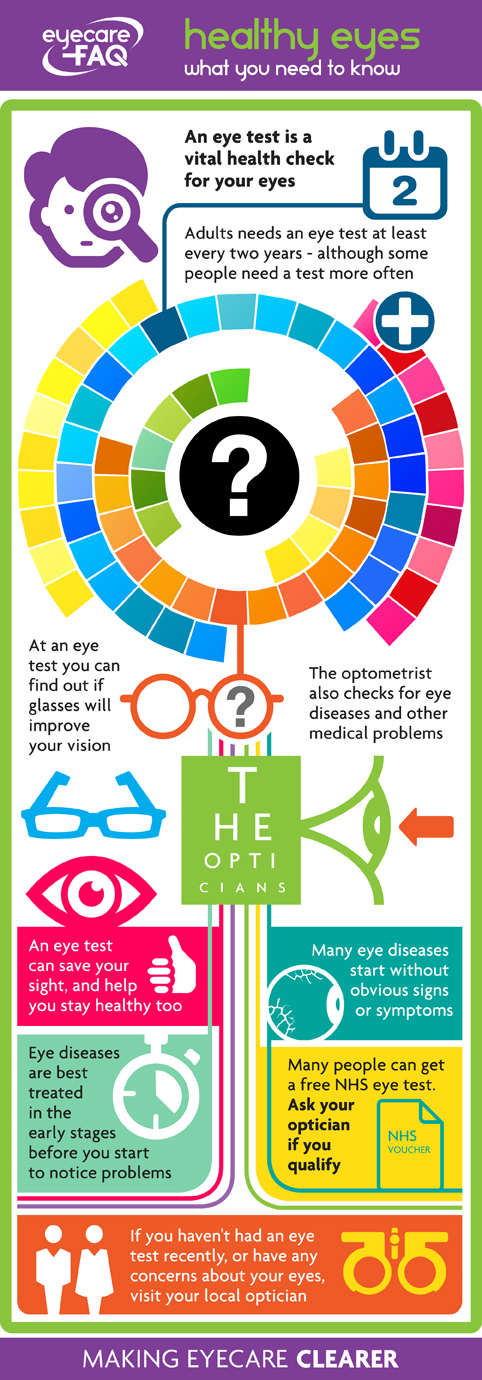Healthy Eyes
An eye test is a vital health check for your eyes. Every adult needs an eye test every two years, and some people may be advised to have a test more often.
During the eye test the optometrist checks if you need glasses, but they do much more than that too. When you have your eyes examined, the optometrist checks for eye diseases like glaucoma that you might not be aware that you are developing. They can also see signs of conditions like high blood pressure and diabetes when they check the eye.
Many of these conditions are treatable, but it is best to get them detected before they start causing problems. An eye test can save your sight, and help you stay healthy too.
You qualify for a free NHS-funded sight test if:
- you’re aged under 16
- you’re aged 16, 17 or 18 and are in full-time education
- you’re aged 60 or over
- you’re registered as partially sighted (sight impaired) or blind (severely sight impaired)
- you’ve been diagnosed with diabetes or glaucoma
- you’re 40 or over, and your mother, father, brother, sister, son or daughter has been diagnosed with glaucoma
- you’ve been advised by an ophthalmologist (eye doctor) that you’re at risk of glaucoma
- you’re a prisoner on leave from prison
- you’re eligible for an NHS complex lens voucher – your optometrist (optician) can advise you about your entitlement
You’re also entitled to a free NHS sight test if you:
- receive Income Support
- receive Income-based Jobseeker’s Allowance (not Contribution-based)
- receive Pension Credit Guarantee Credit
- receive Income-based Employment and Support Allowance (not Contribution-based)
- are awarded Universal Credit
- are entitled to, or named on, a valid NHS tax credit exemption certificate
- you are named on a valid NHS certificate for full help with health costs (HC2)
Optometrists recommend that most people should get their eyes tested every two years. For some people, it is important to have an eye test more frequently.







